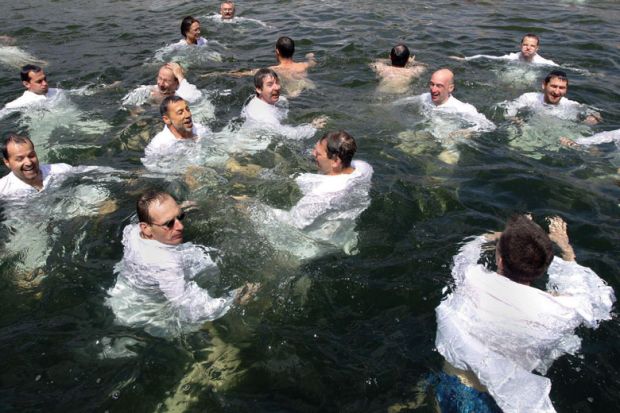The lack of concrete proposals for a “new deal” for UK postgraduate research students has sparked concern that the upcoming review will not lead to meaningful change.
Last week UK Research and Innovation (UKRI) launched its consultation on the New Deal for Postgraduate Research, 19 months after the government committed to the review in its Research and Development Roadmap in July 2020 and seven months after the R&D People & Culture Strategy in July 2021 promised that the shake-up would “consider how postgraduate research students are supported and developed, practically and financially”.
However, while the funder has previously suggested that the new deal might review the employment status of PhD students and whether they should be treated as staff, the latest engagement exercise addresses this point only indirectly; respondents have until 17 May to give their views on “rights and conditions”, including how different employment statuses might affect their rights and conditions, rather than consulting on any specific plans or ideas.
The consultation also invites comments on three other areas of focus: “models and access” related to funding and supervision models; “routes in, through and out”, which focuses on PhD access and completion; and “funding and financial support”.
While many have welcomed the opportunity to give their views, some have expressed frustration about the absence of specific proposals to comment on. One PhD student told Times Higher Education that the consultation was “a lot vaguer than we were expecting”.
“It has taken a long time to publish what are, in reality, a lot of open-ended questions to which we already know the answers,” said another doctoral candidate.
Last year, UKRI spent about £690 million on PhD training – about 9 per cent of its budget – supporting about 28,000 doctoral students.
The failure to directly address the issue of whether UKRI-funded or other PhD students should be extended employment rights may suggest that the funder recognises that it cannot afford to explore radical changes, another academic told THE. “If you look at what it would cost to put PhDs on living-wage contracts, the cost is absolutely eye-watering and UKRI knows this,” she said. “Given UKRI is only going to get modest budget increases over the next few years, it’s unlike we’re going to see this type of change given the enormous costs involved.”
Eleanor Munro, a PhD student at the University of Birmingham, who co-leads the University and College Union’s “postgraduate researchers as staff” campaign, told THE that she was “pleased that this consultation has finally been released, and that the Department for Business, Energy and Industrial Strategy is interested in conditions for all PhD researchers, including UKRI-funded, those funded from other sources and self-funded”.
“But we know what the problems are. Individuals and groups like Pandemic PGRs, Leading Routes and others have been telling UKRI what the problems are for years now,” she added. “What we need is action on key issues, like access and support for black PGRs and other under-represented groups, better conditions for international PGRs, access to bereavement leave and shared parental leave, better sick leave and support for disabled, chronically ill and neurodivergent PGRs, as well as help for working-class and first-generation PGRs to succeed in higher education.”
Kieron Flanagan, professor of science and technology policy at the University of Manchester, said he believed the open-ended consultation was the right strategy as “a big part of the solution has to be for the universities and the funders to accept responsibility for their respective roles in the situation and not just claim that the other party is responsible – which UKRI has started to do but the universities have shown few signs of doing”.
“The idea we need to start from first principles – working out what the goals (societal, scientific, human) of public funding for advanced research training are and how that fits into the broader public research funding research strategy – seems appropriate to me,” said Professor Flanagan.
“There will always be trade-offs and conflicts between the different purposes and interests so it’s better to have those out in the open and discussed rather than obscured otherwise we will continue just having superficial responses like ‘concordats’,” he said, adding that “the timing is potentially right – with a clear political goal to increase public and private research intensity it makes sense to work out what we want and need now”.
Register to continue
Why register?
- Registration is free and only takes a moment
- Once registered, you can read 3 articles a month
- Sign up for our newsletter
Subscribe
Or subscribe for unlimited access to:
- Unlimited access to news, views, insights & reviews
- Digital editions
- Digital access to THE’s university and college rankings analysis
Already registered or a current subscriber? Login








